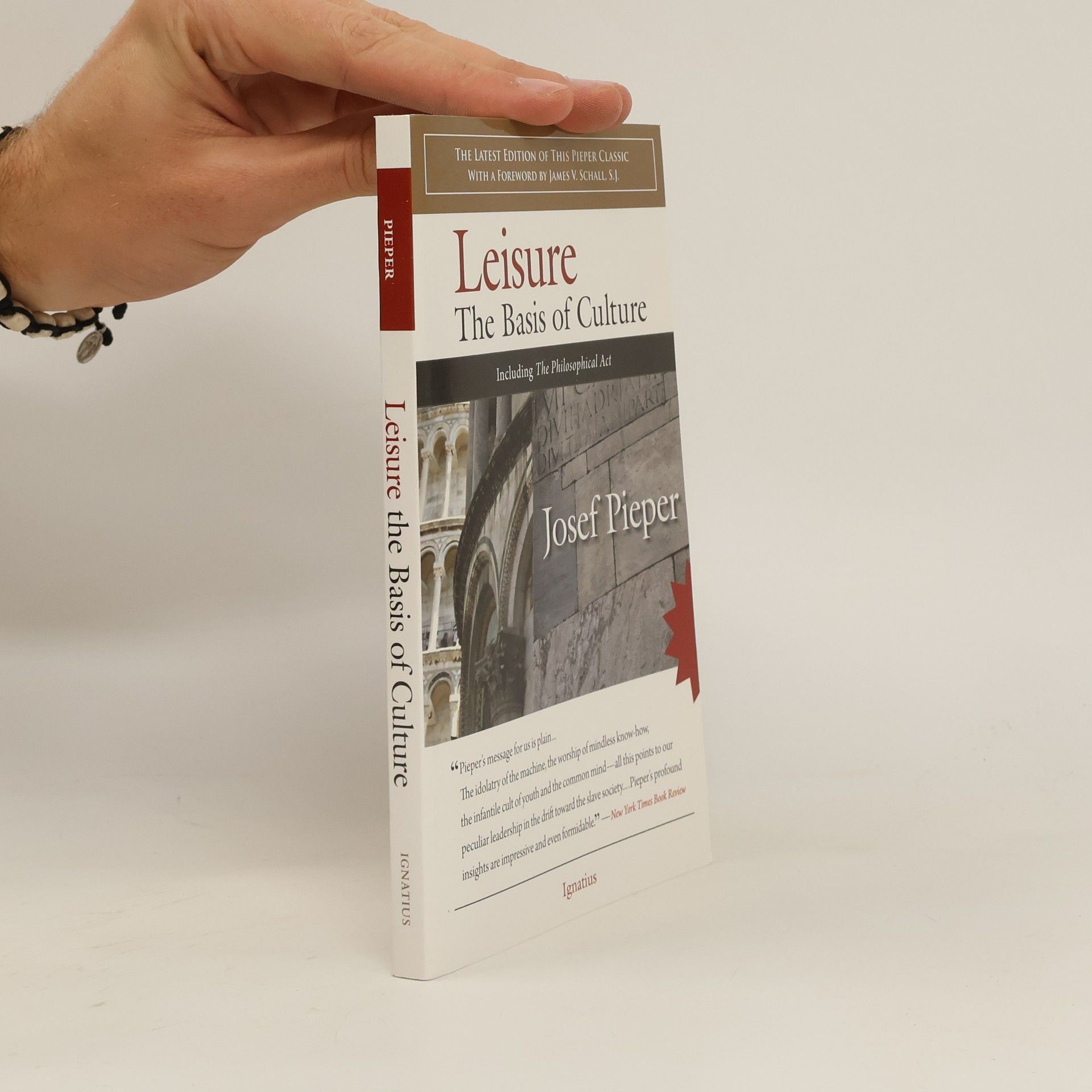"Otium" e culto
- 88pagine
- 4 ore di lettura
Josef Pieper fu professore di antropologia filosofica e si annovera tra i filosofi più letti del XX secolo. Il suo pensiero si concentra sul superamento del totalitarismo secolare e delle sue basi filosofiche, attraverso la riabilitazione del concetto cristiano di uomo legato all'esperienza e all'azione. Platone e Tommaso d'Aquino furono in particolare fonti ispiratrici per una critica costruttiva della cultura contemporanea.







Delivers a stimulating quartet of essays on the four cardinal virtues. Josef Pieper demonstrates the unsound overvaluation of moderation that has made contemporary morality a hollow convention and points out the true significance of the Christian virtues.
"The ultimate of human happiness is to be found in contemplation". In offering this proposition of Thomas Aquinas to our thought, Josef Pieper uses traditional wisdom in order to throw light on present-day reality and present-day psychological problems. What, in fact, does one pursue in pursuing happiness? What, in the consensus of the wisdom of the early Greeks, of Plato and Aristotle, of the New Testament, of Augustine and Aquinas, is that condition of perfect bliss toward which all life and effort tend by nature? In this profound and illuminating inquiry, Pieper considers the nature of contemplation, and the meaning and goal of life.
One of the most important philosophy titles published in the twentieth century, Joseph Pieper's Leisure, the Basis of Culture is more significant, even more crucial than it was when it first appeared fifty years ago. Pieper shows that Greeks understood and valued leisure, as did the medieval Europeans. He points out that religion can be born only in leisure. Leisure that allows time for the contemplation of the nature of God. Leisure has been, and always will be, the first foundation of any culture. He maintains that our bourgeois world of total labor has vanquished leisure, and issues a startling warning: Unless we regain the art of silence and insight, the ability for nonactivity, unless we substitute true leisure for our hectic amusements, we will destroy our cultureCand ourselves. These astonishing essays contradict all our pragmatic and puritanical conceptions about labor and leisure; Joseph Pieper demolishes the twentieth-century cult of Awork as he predicts its destructive consequences.
The autobiographical writings of a modern Christian philosopher reflect his unwavering dedication to truth amidst the turmoil of two World Wars and the Catholic Church's changes during Vatican II. He critiques the dilution of sacred meanings in liturgical practices, advocating for a philosophy that emphasizes living truth existentially. Influenced by Plato, Augustine, and Aquinas, he navigates the tension between philosophy and theology, asserting that while divine understanding requires faith, the quest for truth is an inner journey fraught with mystery, particularly regarding the afterlife.
"Pieper [attempts to] show how death must be seen as an experience of the whole man and is properly to be understood as punishment.' When he views man's pilgrim status on earth, Pieper is led to assert that death is an act of human freedom, consistent with Creation and redemption. . . . With his rare gift of high-level popularization, Pieper brings a critical mind and an in-depth acquaintance with the scholastic tradition to bear on contemporary thought and experience. . . . [This] volume deserves a place on any bookshelf devoted to Christian philosophy." Library Journal "Dr. Pieper very subtly and usefully stresses the character of dying as act and choice, leading us up very gently to the shocking old notion that it might also constitute a well-deserved punishment." Times Literary Supplement